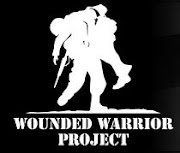The theory of the thing is very peculiar indeed. You are in the middle of a war--a hard war, a war that is going badly. If the government has bogged down, if the people inside have gone stale, you would say that the sound thing, the Churchillian or Lincolnian or Rooseveltian thing, would be, first, to fire a bunch of officials (generals as well as top civilians), promote or bring in fresh talent, and put together a small group of people to take a new and unillusioned look. Those people would report back in secrecy to the president and his most senior advisers and aides.
They would consist of experienced soldiers and civilians in whom the president (who, after all, has to make the strategic decisions, and is the accountable executive) has trust. There would not be many of them, a half dozen or so, and they would have to be hardy enough to visit the war zone for several weeks, talking not just to politicians and generals but to captains and sergeants. They would go see things for themselves. They would visit a forward operating base near Tikrit; they would spend some time with Iraqi soldiers in Taji; they would take their chances in a convoy to al Asad, or even a patrol in Tal Afar.
They--not their staff of a few soldiers and secretaries--would do the probing, digging, thinking, discussing and, above all, the writing. The chairman of the group would insist that they air their disagreements candidly and thoroughly in front of the president, engaging in a debate that might last a day, perhaps longer. The rest of us would not find out about the panel until months, or even years, after it reported back; maybe not until the war was over.
Read the whole thing
Monday, December 11, 2006
Subscribe to:
Post Comments (Atom)






No comments:
Post a Comment